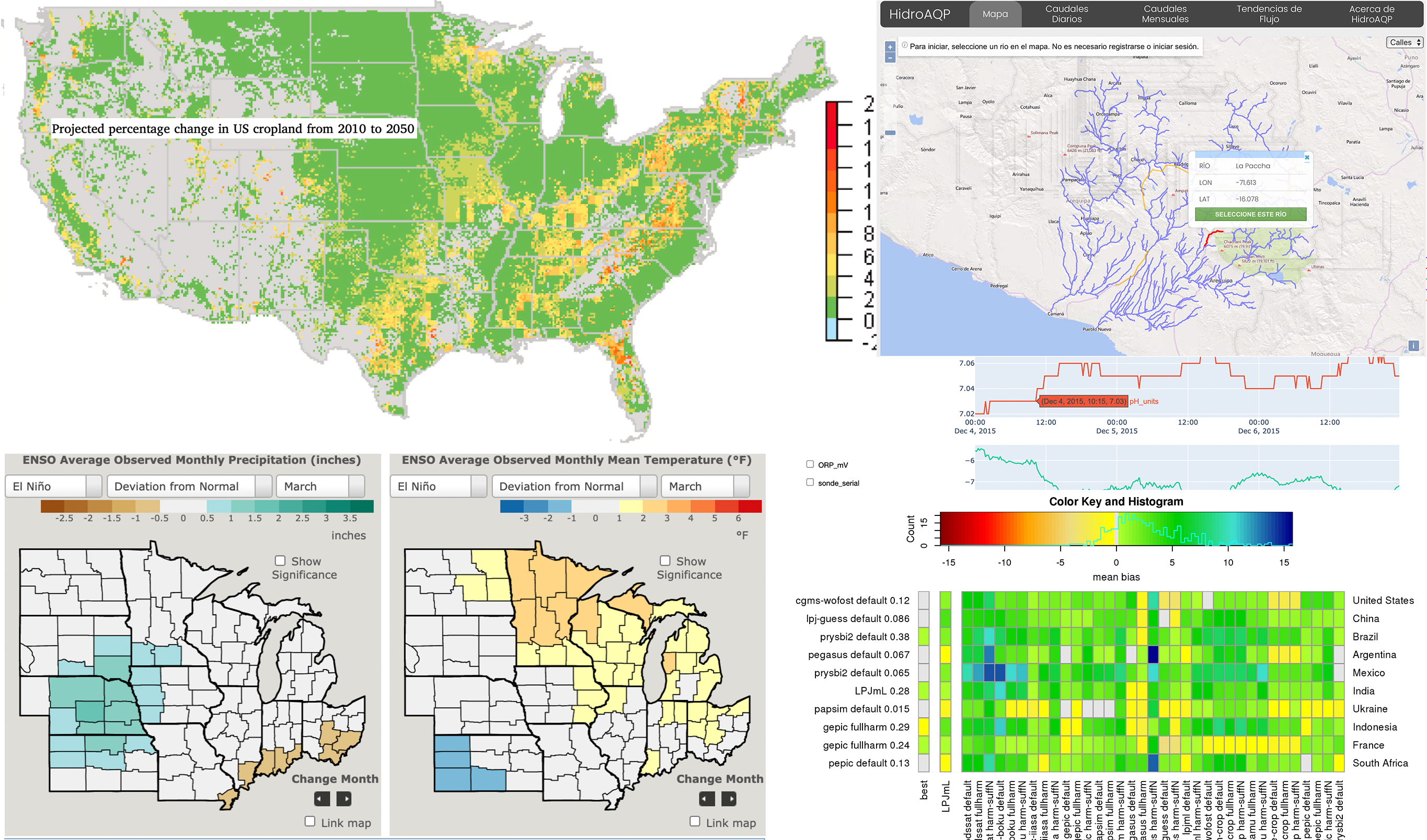RCAC offers Research Software Engineering services
The Rosen Center for Advanced Computing (RCAC)offers a wide range of research software engineering solutions to help advance scientific discovery, enable greater research reproducibility, and generate lasting impact at Purdue and beyond.
RCAC’s Research Software Engineers (RSEs) from the Scientific Solutions group, Envision Center and web applications group not only have comprehensive experience in software design, programming languages and deployment practices to help users create more sustainable software products, but also have deep computational and data expertise to help researchers take advantage of the latest technologies in advanced computation, web frameworks, data analysis, visualization and management. RSEs are also expected to conduct R&D such as producing research publications and presentations and training and engaging the user community.
When researchers partner with RCAC’s RSEs, they get a co-producer who is closely involved in defining the product, even helping to make the pitch to funding agencies, understanding at a certain depth the underlying methods, developing iteratively with frequent feedback, and providing technical support and training, as well as planning for the deployment and future maintenance before the active development phase.
In formalizing its RSE services, RCAC recently established a university-approved Research Software Engineering center, RSE Center for short, as a core capability of research computing to support the software development needs of research at Purdue. With streamlined processes for project intake and management, consistent software engineering practices and oversight, proposal development, and business management, the new RSE center is expected to increase capacity steadily to better support the university’s large and strategic initiatives and center needs.
“I am excited about the potential of our new RSE center. Our teams at RCAC have a proven track record of more than 15 years of collaborating with faculty and students creating cyberinfrastructure and software solutions for research and training. Through the new center, we will increase our capacity to support more researchers and a wider range of fields of study, and will have the bandwidth to build early prototypes to help our faculty be more competitive nationally. The new center also presents many opportunities for career growth for our research software engineers community, whether it is charging a new area to fill a technical gap or mentoring students and researchers in good practices to create sustainable research software. ” -Carol Song
Examples of recent RCAC Research Software Engineering projects include:
-
GeoEDF – an extensible geospatial data and workflow framework to connect distributed data sources and computational tools and help make data-driven research more FAIR (Findable, Accessible, Interoperable, Reusable)
-
Science-i – cyberinfrastructure for managing global plot-level forestry data under a dynamic data governance framework adhering to country and researcher-specific sharing policies
-
I-GUIDE – cyberinfrastructure for carrying out convergence science research workflows at unprecedented scale in this NSF HDR Institute
-
Cyber Training for Open Science in Climate, Water and Environmental Sustainability - developing a curriculum on advanced cyberinfrastructure training at the foundational, expert and developer levels for climate, water and environmental science students and researchers.
-
StreamCI – a cloud-based streaming data cyberinfrastructure for real-time sensor data collection, processing, analysis, visualization, and data services via APIs (application programming interfaces)
-
CCRI – cyberinfrastructure for extracting, managing, and analyzing job performance data from large HPC systems including the NSF-funded Purdue Anvil and TACC Frontera systems, in collaboration with the Texas Advanced Computing Center (TACC)
-
SafeRx - a joint effort between the Purdue University Center of Medication Safety Advancement (CMSA) and RCAC, this project developed the cyberinfrastructure and ML model to collect and analyze Twitter data for drug adverse side effects
-
IsoMAP – a science gateway for online isoscape modeling, analysis and prediction. It accesses and integrates a number of diverse datasets and enable users to develop isoscape models over selected spatial and temporal domains using geostatistical algorithms, predict maps for the stable isotopic ratios of water and plants and associate a sample’s isotope value with its most likely geographic origin.

In addition to developing software for research projects, the RSE center will create training materials to be incorporated into the RCAC training program and hosting webinars on software engineering best practices and technology exchanges, as well as host student interns in various projects.
To reach out to the RSE center and begin a discussion on your research software development needs, faculty may send an email to rse@purdue.edu.
